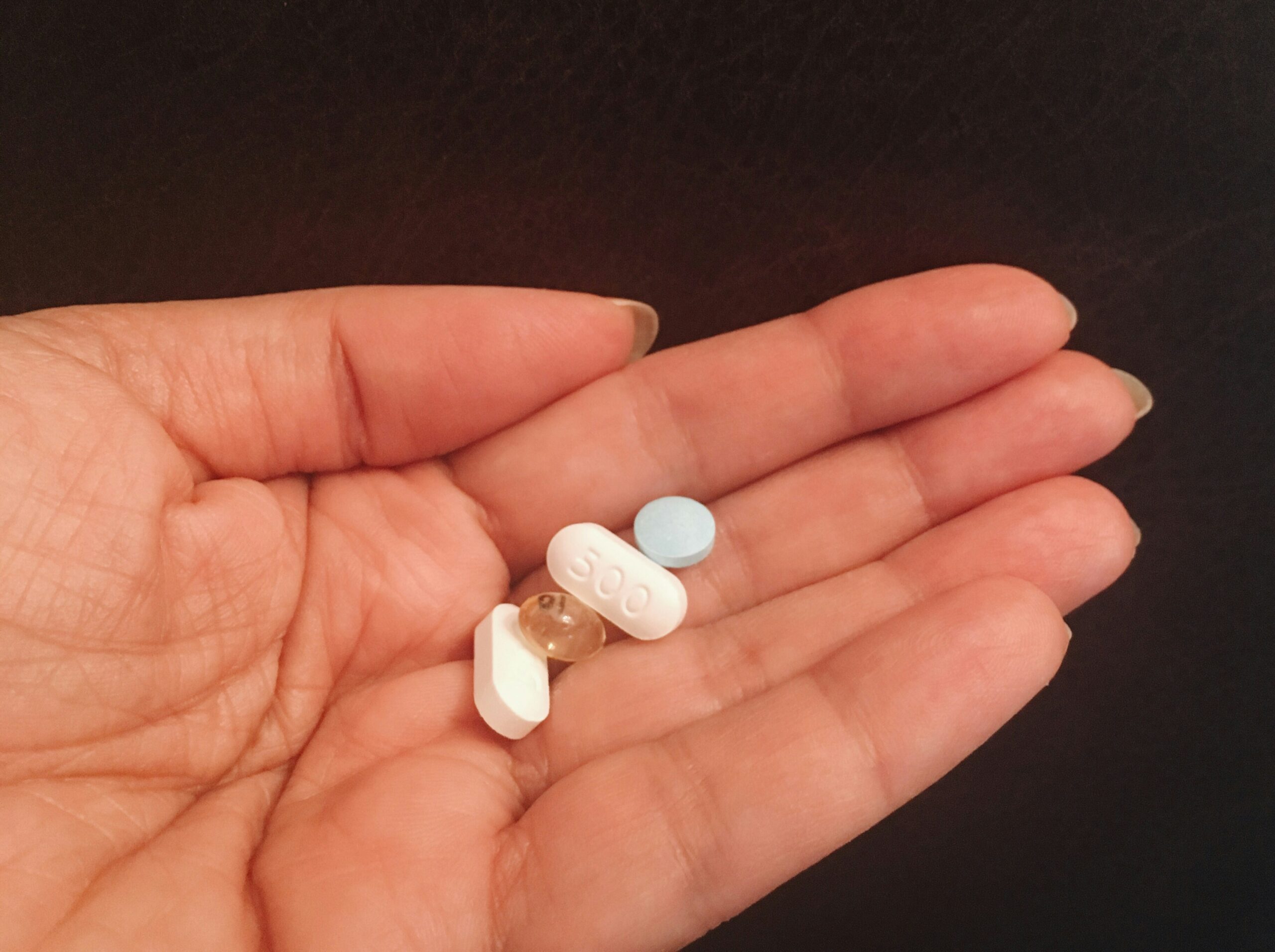A pharmacist's obligations rise above those of a standard pharmaceutical wholesaler at a counter. These restorative specialists are very capable of the natural impacts of drugs. They know the pharmacological purposes, data, and ways of activity of numerous distinctive drugs.
By directing patients to get the prescribed outcomes, organization headings, and preventative activities to maintain a strategic distance from issues, drug specialists help them advance the appropriate and effective use of pharmaceuticals.
Working as a pharmacist may be troublesome and modern work. Before looking for a Doctor of Pharmacy (Pharm.D.), one must begin by wrapping up an undergrad degree in a Pharmacy or a closely partnered subject. This preparation program includes intensive courses in pharmacology, science, chemistry, and clinical hone. Upon graduation, pharmacists must pass licensure tests; the foremost vital ones are the North American Pharmacist Licensure Examination (NAPLEX) within the United States and related tests overseas. In any case, drug specialists must keep up to date on the most up-to-date drugs and restorative medicines, as they still have to complete their instructions.
Pharmacy envelops not, as it were, the scattering of solutions but the logical and inventive apparatuses required for fabricating and administrating safe and strong drugs. Covering all stages of sedate creation, make, utilization, and transfer, pharmaceutics joins chemical and therapeutic inquiries. Pharmacy is committed to the reasonable, secure, and proficient utilization of drugs.
The pharmacy comprises a few subfields. Pharmacy is the logical thinking about the intuition between atoms and drugs to handle their impacts on the body better. Whereas pharmaceutics centers on the detailing and dissemination of drugs, restorative chemistry includes developing and fabricating novel pharmaceuticals. Pharmacy Hone employs obtained information to ensure that drugs are utilized for the finest conceivable well-being results by means of patient care.

Drug specialists are among therapeutic suppliers who are highly approachable, as most drug stores promptly oblige walk-in patients. Consultation with a drug specialist is suggested for people who have endorsed pharmaceuticals for either a transitory or long-term therapeutic condition. A master drug specialist can offer vital guidance on medicine administration, possible side impacts, and fitting activities required in case of missed measurements. Moreover, they may recommend non-prescription medicaments to calm headaches, sensitivities, and colds.
People harrowed with incessant afflictions such as diabetes, asthma, or hypertension ought to plan customary discussions with their doctor. Patients enduring these illnesses ought to adhere to perplexing treatment conventions that can be challenging to supervise. Pharmaceutical experts can offer back by affirming any potential sedate and advertising counsel on following medicine regimens and proposing alterations after seeking a doctor's counsel.
To moderate sedate intelligence and minimize undesired impacts, it is fitting for people aged 65 and over who are endorsed by different drugs to counsel a drug specialist routinely. Drug specialists can autonomously confirm the security of medicine drugs, over-the-counter drugs, or supplements earlier to their combination.
Diagnostic procedures utilized by drug specialists incorporate the following:
Medication Therapy Management![]() (MTM) may be a vital instrument utilized by clinicians to distinguish the cause of a condition absolutely. Medication Therapy Management (MTM) may be a total approach outlined to assist patients maximize the adequacy of their drugs. The pharmacist assesses the patient's current pharmaceutical regimen during a pharmaceutical Therapy Management (MTM) session. That incorporates medicine drugs, non-prescription medicaments, and dietary supplements. They must guarantee the appropriateness of each pharmaceutical for understanding, managing the intuition between drugs, assessing the patient's adherence to their treatment arrangement, and investigating any conceivable negative results.
(MTM) may be a vital instrument utilized by clinicians to distinguish the cause of a condition absolutely. Medication Therapy Management (MTM) may be a total approach outlined to assist patients maximize the adequacy of their drugs. The pharmacist assesses the patient's current pharmaceutical regimen during a pharmaceutical Therapy Management (MTM) session. That incorporates medicine drugs, non-prescription medicaments, and dietary supplements. They must guarantee the appropriateness of each pharmaceutical for understanding, managing the intuition between drugs, assessing the patient's adherence to their treatment arrangement, and investigating any conceivable negative results.
Pharmacists recommend a basic demonstrative apparatus, the Drug Utilization Review (DUR). A drug Use Survey (DUR) could be an intensive appraisal of a patient's medicine regimen to confirm that the medicines are being taken concurring with the prescribed enlightening. This approach incorporates evaluating the patient's vital records, existing medicines, and relevant test discoveries. Regularly, when presenting a modern pharmaceutical or changing an existing treatment arrangement, the Drug Use Review (DUR) strategy is utilized.
The objective of DUR is to identify any issues which will compromise the security or adequacy of drugs. Particularly, a drug specialist may lock in research on sedate combinations, decide the foremost successful measurement and treatment plan, and survey the patient's response to the pharmaceutical. In the case of any issues, the drug specialist collaborates with the endorsing doctor to arrange any required alterations to the patient's treatment. Continuous Ultrasound (DUR) could be an orderly technique that guarantees patients secure and high-quality restorative treatment.
Drug store professionals are increasingly utilizing point-of-care testing (POCT) since it allows them to analyze and test patients right where they are rapidly. The most tests that POCT does in a Pharmacy setting with convenient instruments are basic blood glucose checking and cholesterol screening. A drug specialist is an individual who can rapidly see a patient's health and make a taught choice of treatment alternatives.
Point-of-care testing![]() (POCT) is exceptionally accommodating for individuals taking care of long-term ailments that must be observed over all the time, like diabetes or high blood weight. Blood glucose test outcomes can offer assistance to drug specialists to alter a diabetic patient's drugs or grant them counsel on how to live a more beneficial life. Point-of-care testing (POCT) can also offer assistance in rapidly discovering well-being issues so patients can be quickly referred to other therapeutic experts who can offer assistance.
(POCT) is exceptionally accommodating for individuals taking care of long-term ailments that must be observed over all the time, like diabetes or high blood weight. Blood glucose test outcomes can offer assistance to drug specialists to alter a diabetic patient's drugs or grant them counsel on how to live a more beneficial life. Point-of-care testing (POCT) can also offer assistance in rapidly discovering well-being issues so patients can be quickly referred to other therapeutic experts who can offer assistance.
Collaborative Practice Agreements![]() (CPAs) make collaborating less demanding for drug specialists and other medical experts. To advance patient care, these deals allow pharmacists to perform additional demonstrative tests and alter patients' medicine plans, among other things. A CPA gives the drug specialist the control to choose when to start, change, or halt pharmacological treatment based on the results of demonstrative tests or other clinical assessments.
(CPAs) make collaborating less demanding for drug specialists and other medical experts. To advance patient care, these deals allow pharmacists to perform additional demonstrative tests and alter patients' medicine plans, among other things. A CPA gives the drug specialist the control to choose when to start, change, or halt pharmacological treatment based on the results of demonstrative tests or other clinical assessments.
Certified Public Accountants (CPAs) are exceptionally supportive in overseeing persistent sicknesses since they always have to alter medicines and keep an eye on individuals. For illustration, a chemist who is additionally certified as an open bookkeeper can monitor a patient's imperative signs and alter their medicine to keep their blood sugar or blood weight levels in check. This way of working together makes, beyond any doubt, patients get total, well-coordinated care that's custom-made to their personal needs.

Cases of well-being issues handled by drug specialists are clarified below:
It's incomprehensible to say sufficiently how vital drug specialists are for overseeing diabetes and its results. Specialists instruct their patients on how to successfully control diabetes by changing their ways of life, staying to affront plans, and closely observing their blood glucose levels. By working closely with patients, drug specialists can move forward with pharmaceutical plans and doses, making keeping their blood sugar levels within ordinary ranges simpler.
In addition to helping to oversee diabetes-related issues like retinopathy, neuropathy, and heart issues, drug specialists can also suggest solutions that lower cholesterol or secure the kidneys, which can help halt infections that become more regrettable over time. Working together as a healthcare group can provide each diabetes patient with a special and exhaustive treatment plan.
Furthermore, pharmacists are basic in the management of hypertension![]() , which may be a term that's sometimes utilized to depict raised blood weight. Hypertension is related to a hoisted chance of cardiovascular infection, stroke, and other related conditions. These dangers can be successfully moderated through successful administration. Patients can procure information from their pharmacist advisors concerning the significance of following their medicine regimens, modifying their ways of life to diminish blood weight, and observing their blood weight.
, which may be a term that's sometimes utilized to depict raised blood weight. Hypertension is related to a hoisted chance of cardiovascular infection, stroke, and other related conditions. These dangers can be successfully moderated through successful administration. Patients can procure information from their pharmacist advisors concerning the significance of following their medicine regimens, modifying their ways of life to diminish blood weight, and observing their blood weight.
Also, they moderate certain undesirable results of blood weight treatment, counting weariness and vertigo, which seem to obstruct patients' compliance with their endorsed regimen. Pharmacists are competent in adjusting patients' doses and medicines or giving direction on how to oversee antagonistic impacts when asked. It remains easy for people to screen their well-being by taking blood weight estimations at a drugstore.
Drug specialists' essential obligation is treating respiratory disorders, including asthma and COPD. These conditions require a continuous understanding of administration to ensure satisfactory lung function and control. Drug specialists educate patients on the correct utilization of inhalers and other medications and the avoidance of substances that will worsen their condition.
Also, asthmatic patients benefit from help creating procedures for overseeing asthma attacks. These arrangements give profitable direction on administering indications and recommend that patients counsel with experienced restorative experts. Pharmacists offer administrations and expertise to assist people with chronic obstructive pulmonary disease (COPD) in quitting smoking, subsequently relieving the essential cause of the sickness.
Anticoagulants prevent blood clots in people with atrial fibrillation, profound vein thrombosis, or pneumonic embolism. However, overseeing this medicine may be challenging due to the need to routinely assess and alter the measurement of anticoagulant medicines to guarantee ideal blood coagulation. In this treatment, drug specialists are instrumental in teaching patients about the correct organization of drugs and persistently observing for sedate and unfavorable effects.
Drug specialists may ask for blood tests, such as the International Normalized Ratio (INR), to assess the viability of anticoagulant pharmaceuticals. Patient anticoagulant doses can be balanced to guarantee that they stay within the expected extent of understanding what happens. This reliable perception guarantees secure and successful restorative care because it is exceedingly unlikely that patients will encounter hematological disarrangements or bleeding.

If you need to form the foremost part of your trip to the drugstore, arrange it beforehand. Take after these thoughts to make your doctor's arrangement more pleasurable. That applies whether you wish to resume a medicine, examine your medicines, or look for direction to bargain with a well-being issue.
It would be ideal if you made a list of all the drugs you employ, whether they are medicine, over-the-counter, or dietary supplements. That permits the drug specialist to decide whether there are any medicate intelligent or superfluous dosages. It would also be ideal if you kept a list of all the drugs you take, when you should take them, and any unfavorable responses or challenges you've had in the past.
Before, you went to the drugstore to procure a new prescription, and beyond any doubt, you got what your specialist told you. It's basic to keep track of any questions you have concerning the medication, such as how to require it, potential unfavorable impacts, or getting extra measurements.